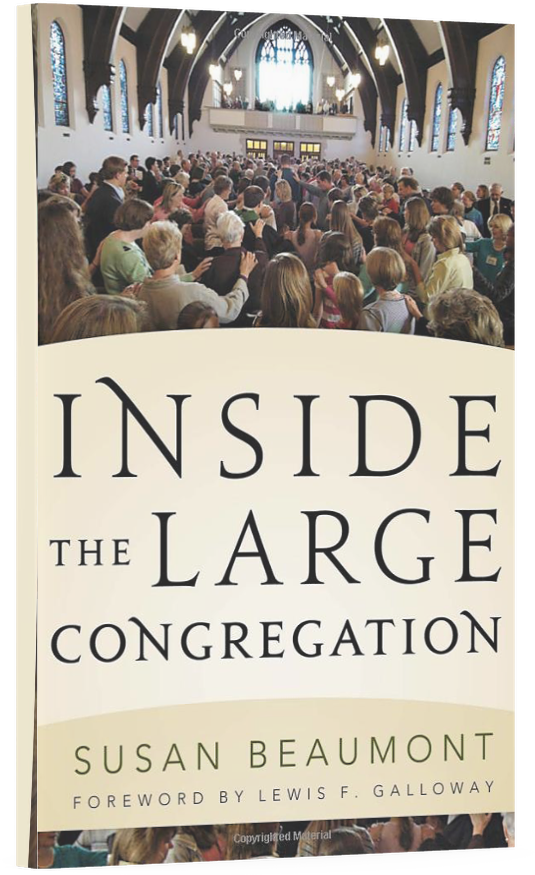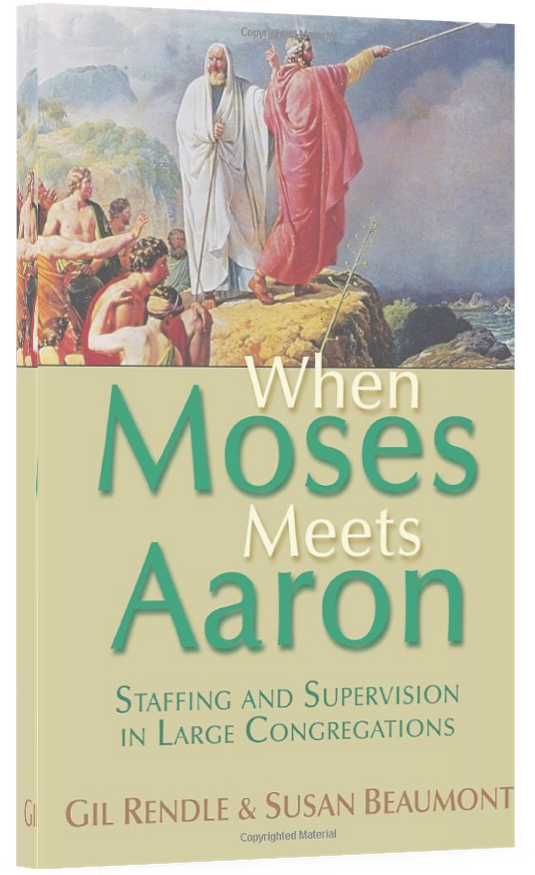“We are an organization based on volunteerism, what can you expect? We don’t have money to pay or reward our employees fairly, what can you expect? We are covenantal communities, and as such we are meant to extend grace and mercy to our members and staff, so what can you really expect?”
 In the world of congregations we offer an infinite number of reasons as to why we can’t foster accountability among our employees and volunteers. Most of those reasons don’t stand up under scrutiny, particularly once you understand what accountability really involves.
In the world of congregations we offer an infinite number of reasons as to why we can’t foster accountability among our employees and volunteers. Most of those reasons don’t stand up under scrutiny, particularly once you understand what accountability really involves.
What is accountability?
Accountability is part of a three-legged stool that must stand in balance to achieve effective organizational performance. The three legged stool includes authority, responsibility and accountability. You can’t achieve one without the equal support of the other two.
Authority is the legitimate right to act in a given situation. We say that someone has authority when they have been vested with the right to make a decision, allocate resources, or assign responsibilities on behalf of the whole.
A staff member or volunteer acting on behalf of the congregation gains authority in a variety of ways. Perhaps they have a job or ministry description that defines the boundaries of their role, and their right to act in a variety of circumstances. Perhaps the head of staff or governing board have publicly stated that the individual has been asked to decide or act on behalf of the whole. Or, a written policy statement might describe who is authorized to act or to decide in a variety of different circumstances. Unless clear authority has been assigned we ultimately cannot create accountability. You cannot hold someone accountable for something over which they have no authority to act.
Responsibility is the duty to perform the task. Some “one” must complete the tasks or action steps associated with the activity undertaken. That someone is the person with responsibility. Responsibility can be assigned or delegated from one person to another, but not without first establishing the authority to act, and not without also setting up the feedback loop of accountability.
Accountability is answerability, blameworthiness, liability, and the expectation of account-giving. Accountability only works if we have first appropriately assigned both authority and responsibility. We create accountability when an appropriately authorized individual is charged with the responsibility to perform a given act, and then is also affirmed for successfully performing that action, or held liable for their failure to effectively perform the action.
Intentional conversation is the best way to invite accountability.
At its core, accountability is reinforced through intentional conversation. Conversation is the most powerful tool available to us for creating an account-giving culture. Authority is assigned through conversation. The responsibility to act is also established through conversation. The conversation may be verbal or written, but in either case, someone speaks a word and the authority is assigned, a word is spoken and the expectation is established.
Similarly, accountability is nothing more mysterious that an intentional conversation. We set the table for a feedback conversation. We reiterate what the expectations were, along with our feedback on whether the person has met our expectations, failed to meet our expectations, or exceeded our expectations. We offer the appropriate praise, or extend an invitation to close the gap between what we observed and what we expected. That’s it-accountability in a nutshell!
Accountability doesn’t require the presence of external rewards or monetary systems in order to work. Most healthy individuals have a desire to meet expectations around performance. They need to have a clear understanding of what is actually expected. They need clear authority to act. They require feedback that validates their efforts and helps them to see where they may have fallen short, or feedback that affirms that they have met or exceeded expectations.
What about grace?
Congregations are covenant communities. We often mistakenly believe that this means that people should be let off the hook for errors and omissions of performance. I believe that this reflects a weak understanding of both covenant and grace.
We cannot be authentic covenant communities unless we are also accountable communities. All of the biblical examples of covenant that we draw from involve elements of accountability. When covenant is broken or violated, God delivers or asks for an accounting. The original expectation is reiterated. The standard is reasserted. Grace (undeserved mercy) is extended after the accounting. Grace doesn’t negate the need for accountability. It provides the clean slate from which new action can be taken to begin again.



